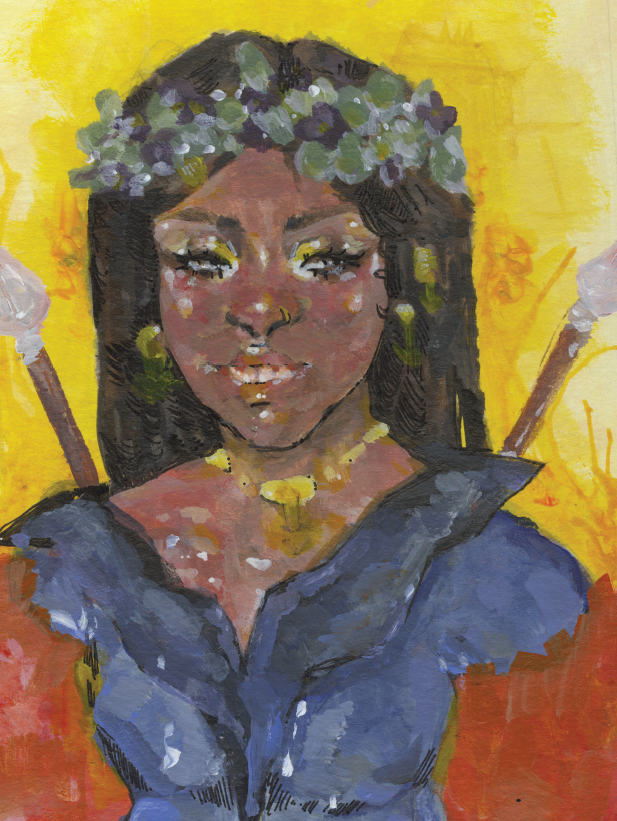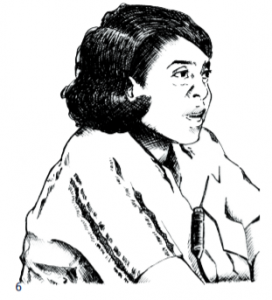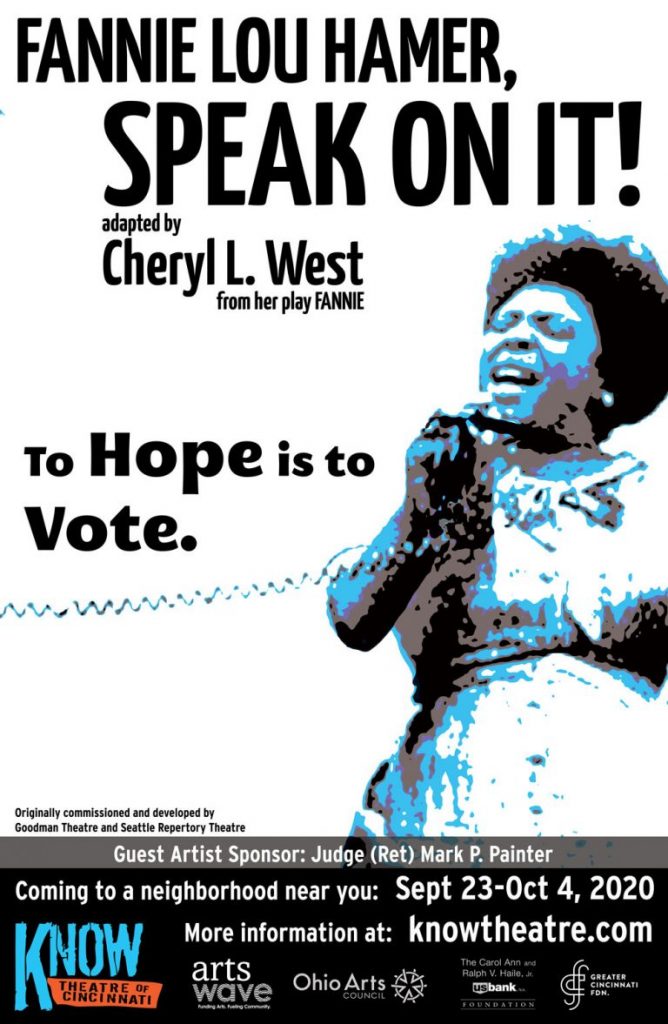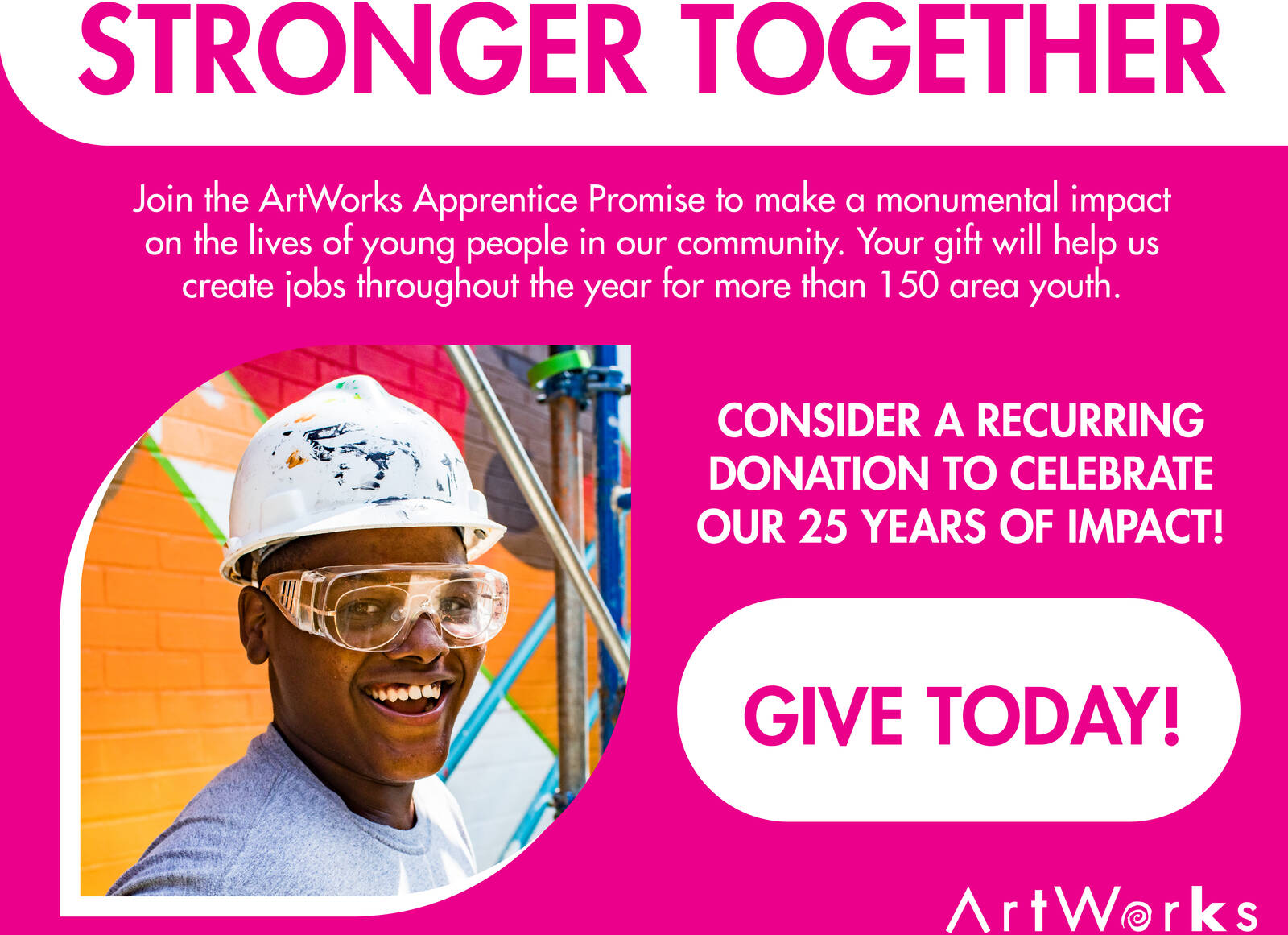The following was written in 2019 by the Youth Apprentice Team for Hear Me Out: A Youth Driven Field Guide for Voting in Ohio. The team was led by Reverb Art + Design. Learn more about Hear Me Out and download the full guide here. Voter registration (including updating your address) ends in Ohio on October 5, 2020, so be sure to register or update your address here. ArtWorks Youth Apprentices encourage all voters to check to make sure they are registered before the deadline.

With the people, for the people, by the people. I crack up when I hear it; I say, with the handful, for the handful, by the handful, cause that’s what really happens. —Fannie Lou Hamer
Although women had gained the right to vote in 1920, by the mid-point of the 20th century, conditions for black communities in the South had increasingly become violent as the structures of Jim Crow prevented African Americans from the promise of life, liberty and the pursuit of happiness.
For those fighting for Civil Rights, ballot access became a top priority to truly create an equitable democracy. Ella Baker founded The Student Non-Violent Coordinating Committee (SNCC) in 1960. In 1964, SNCC organized The Freedom Summer Project in Mississippi.
The Freedom Summer Project encouraged black Mississippians to vote despite the constant threats, violence and repercussions of their white neighbors. At this time, Mississippi was one of the most violent states operating under the conditions of Jim Crow. The Freedom Summer Project was advertised in colleges across the United States, including Ohio’s Miami University which was a coordinating point for hundreds of volunteers.
Those who participated in The Freedom Summer Project faced arson, bombings, beatings, arrest and murder. Volunteers—both black and white from all over the country—went to Mississippi to register voters and help run Freedom Schools, which focused on educating African American communities about black history and voter registration.
“Nobody’s free until everybody’s free.” – Fannie Lou Hamer

As a black Mississippian, Fannie Lou Hamer had faced many forms of racism including arrests, beatings, forced sterilization and multiple attempts of murder, including from the police. Hamer dedicated her life to fighting against the institutions of racism and Jim Crow, and became a leading organizer and movement builder for the Freedom Summer Project.
Hamer co-founded the Mississippi Freedom Democratic Party (MFDP), which challenged the segregated Mississippi Democratic Party. At this time, the Mississippi Democratic Party only allowed participation by whites although African Americans made up 40% of Mississippi’s population.
In 1964, Hamer and the MFDP traveled to the Democratic National Convention in Atlantic City demanding representation of African Americans in the local and state government process. Hamer delivered a speech at the convention detailing her struggles growing up in the Jim Crow South which was scheduled to broadcast all over America.
Then president Lyndon B. Johnson, who was wary of Hamer’s powerful speech, scheduled an impromptu televised press conference for the sole purpose of stealing Hamer’s screen time. After Johnson’s plan was discovered, Hamer’s speech was rebroadcast and reached millions of Americans to inform the nation about what was happening in the South.
Hamer’s speech prompted the national conversation to turn attention to the Jim Crow South. Because the nation began to focus on what was and had been happening to black communities under Jim Crow, President Johnson was forced to act. The same year as Hamer’s famous speech, the passage of the 1964 Civil Rights Act outlawed discrimination based on race, color, religion, sex or national origin.
In 1965, The Voting Rights Acts was passed which strictly prohibited racial discrimination in voting. Although a monumental act, it is important to know that major pieces of The Voting Rights Act were struck down in 2013 in the case of Shelby County v. Holder on the grounds that the 1965 act was based on forms of racial suppression that were said to no longer exist. There is current legislation drafted to address the precedent that exist due to the Shelby County v. Holder case although no legislation has been passed and signed into law.
Get Your Copy of the Hear Me Out Guide
See Fannie Lou Hamer ‘In Person’

From September 23 – October 4, Know Theatre is presenting Fannie, a traveling production that recreates Fannie’ Lou Hamer’s famous civil-rights rallies. Fannie is bringing her pickup truck and her Music Man to a parking lot near you to share her journey from sharecropper to activist, sing her favorite old-school spirituals with you, and empower you to be the fearless firebrand she knows you can be. The Know is partnering with The Greater Cincinnati Voter Collaborative to conduct voter registration drives at every pay-what-you-can performance. Find out how you can attend.
Thank You to Our Sponsors

About ArtWorks
ArtWorks is an award-winning Greater Cincinnati nonprofit that transforms people and places through investments in creativity. The organization creates jobs for youth, ages 14-21 with the majority from underserved households, providing competitive 21st-century career-readiness skills through mentorship by professional artists. Since 1996, ArtWorks has employed more than 3,600 youth and 3,200 creative professionals, and the organization has completed more than 12,500 public and private art projects that include 190 permanent outdoor murals, contributing to the region’s global reputation as an arts destination. ArtWorksCincinnati.org
Images by the ArtWorks Hear Me Out Apprentice Team.
